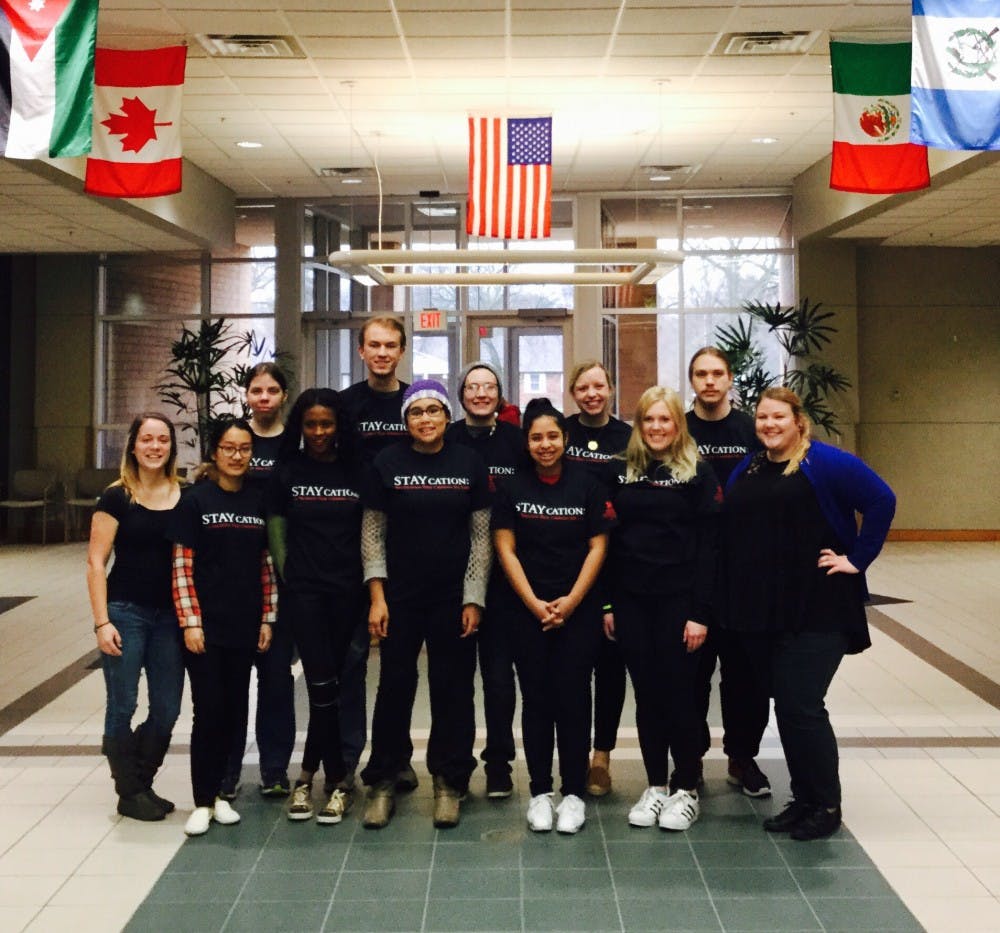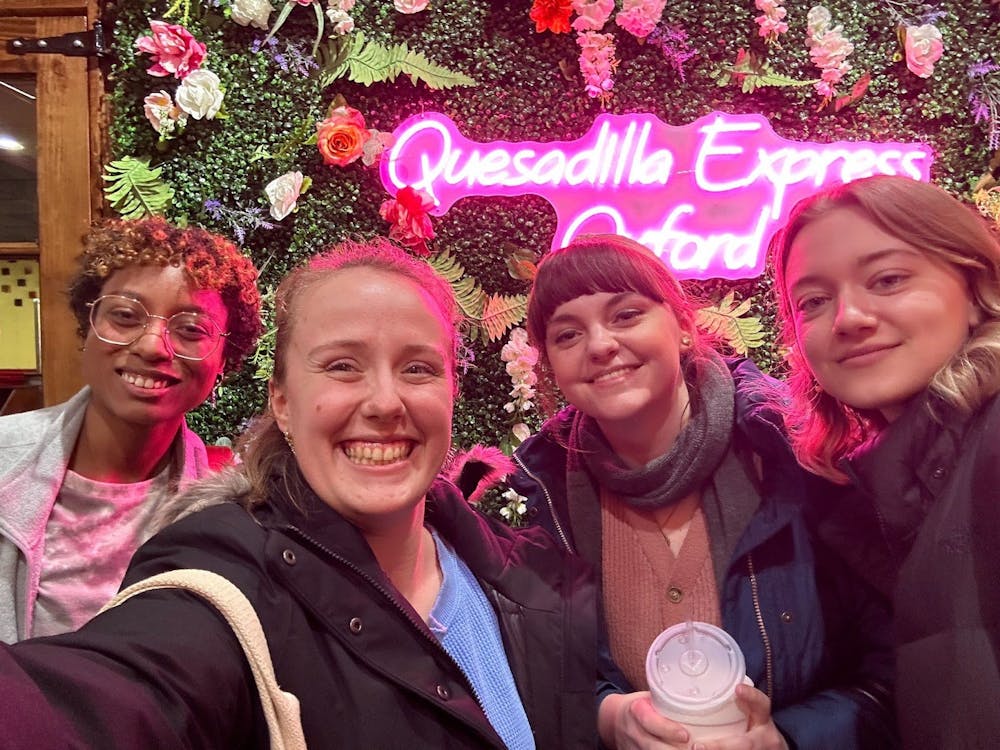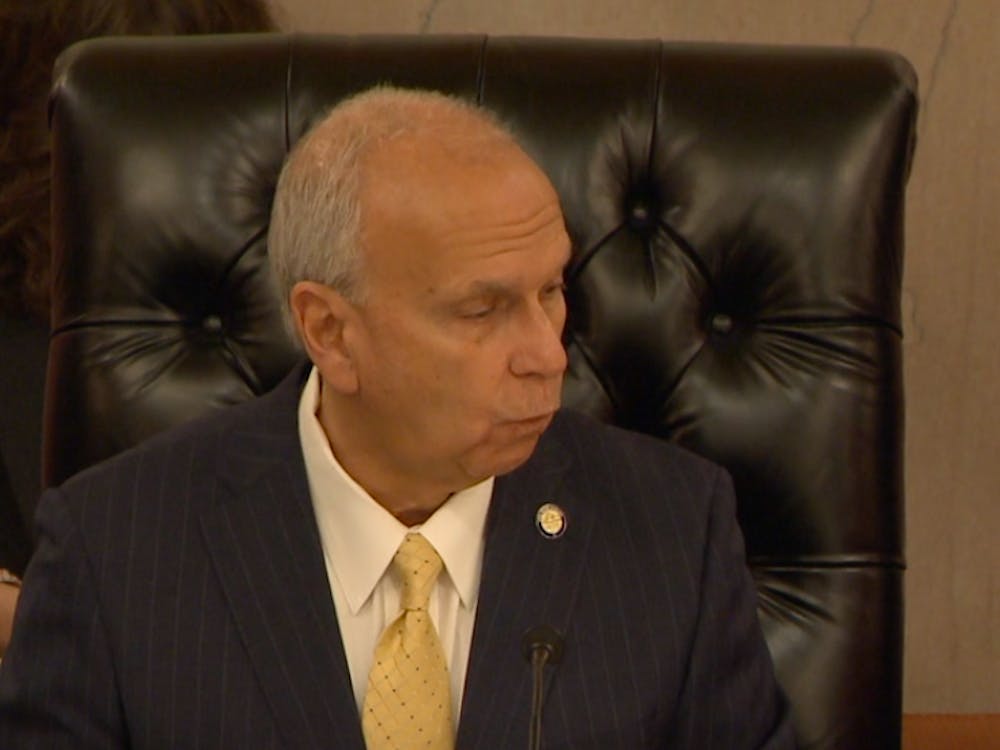For many, a spring break "staycation" seeks relaxation. Not for all.
Some spend their break doing something that will influence their life missions.
For the nine undergraduate students of Oxford and Hamilton's Staycation program, the hiatus from school meant serving locally.
The group spent four days and three nights of immersive learning about poverty, homelessness, addiction, and food instability close to home, thanks to the Center for Civic Engagement of Miami Hamilton.
The Center reuses 70-80 percent of its programming from year to year. Core partners include Sojourner addiction recovery, Shared Harvest Foodbank, and S.E.L.F., Supports to Encourage Low-Income Families.
With the headlining mission of the program being poverty-immersion, issues like hunger are integral and prioritized year after year. According to Feeding America, Ohio ranks 15th in country for rate of child food insecurity and Butler County has food insecurity rate is 14 percent.
However, this being the cohort's ninth time around, the center did what it could to keep the social issues relevant. The program listened to what causes were most important to applicants, then set up visits to cater to those concerns.
Based on input from this year's interviews, racial equality and mental health were the causes added to the agenda.
This diverse lineup of passions was paired with a wide range of students. Chris Klefeker, Coordinator for Service-Learning & Volunteerism at Miami Hamilton, made it a goal to draw from different majors, ages, ethnicities, religions, socioeconomic backgrounds, and personal beliefs.
"We have tremendous, tremendous diversity in this cohort, and have in every cohort," Klefeker said.
Each year, the program has had a cap of ten students. The chances to clique diminished, and the chances to take full advantage of the program increased, according to the Center for Civic Engagement.
At the beginning, icebreaking opportunities were prioritized. "They're learning about a lot of deep, personal issues and sharing personal experiences, so we want them to feel very comfortable with each other," Klefeker said.
Enjoy what you're reading?
Signup for our newsletter
Prior to each visit, students were mentally prepared by news articles, TED talks, interactive tasks, and reflective questions. This approach reflects the greater goals of Staycation: exposure and education on hard-hitting social issues.
"[Staycation] has also changed my views on the causes of homelessness, poverty, addiction, and so much more. It is important that we all focus on the similarities between us rather than the differences," said Julia Tegge, a Miami Hamilton freshman.
Participants like Ryan Stephens, Miami Hamilton senior, admitted that their eyes were opened to the reality of those down on their luck, to which most may turn a blind eye.
"I see them for who they are, that maybe they have just had some issues that come up, but they they're working hard to work through their situation," Stephens said.
Coordinators said it is not uncommon for participants to change majors or future directions in life post-Staycation.
Klefeker said it is nearly guaranteed that all participants became more involved on campus and more prideful of the local community. They often become advocates for one or more public issues.
"Before I just wanted to be a social activist. Now I want to do that and maybe somehow work in the political world to help people in poverty and race issues," said Tiernee Gonzalez, a Miami Hamilton student.
After hearing it year after year, the program decided on this shirt slogan: "Staycation. The vacation that changed my life."
To further sell students on the Staycation program, all expenses are paid. "It's very important to us that students are not out one dime," Klefeker said. To her, costs should never inhibit giving back.
Apply. Get accepted. Serve. That is all.
Staycation members will be publicly presenting their experience on Friday, March 31 at 3 P.M. at the Miami Hamilton Downtown Center.




